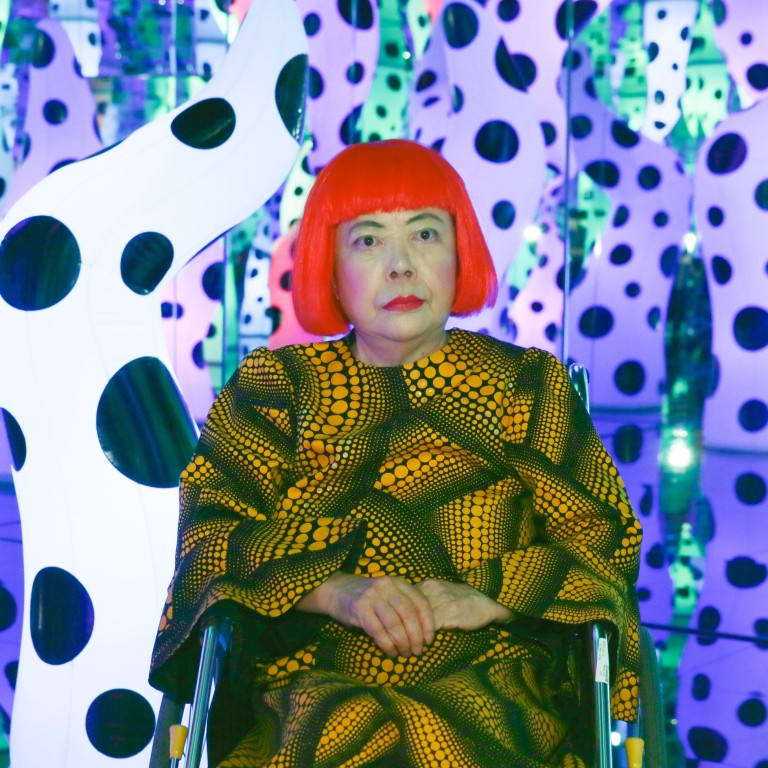
M+ museum to offer 10,000 free tickets to Hong Kong students for its Yayoi Kusama exhibition to boost mental health
- Giveaway aims to help students feel comfortable talking about their mental health by viewing works of an artist who expressed her own challenges through her art
- The programme will also host art workshops that encourage students to create artworks themselves, using Yayoi Kusama as a catalyst
Social distancing regulations have lifted and Hong Kong is officially open again, but returning to “normal” after the pandemic isn’t as easy as taking off a face mask. Many in Hong Kong are feeling stuck, a residual sense of unease and isolation hanging over them like a dark cloud.
“Particularly in the post-pandemic moments where people are looking for connection, something tangible, there is something to be said for the process of going to a museum,” says Keri Ryan, lead curator for learning and interpretation at M+.
“An art museum does it well. It gives you the opportunity to slow down. I believe in the idea of slow looking, spending a long time looking at something.”
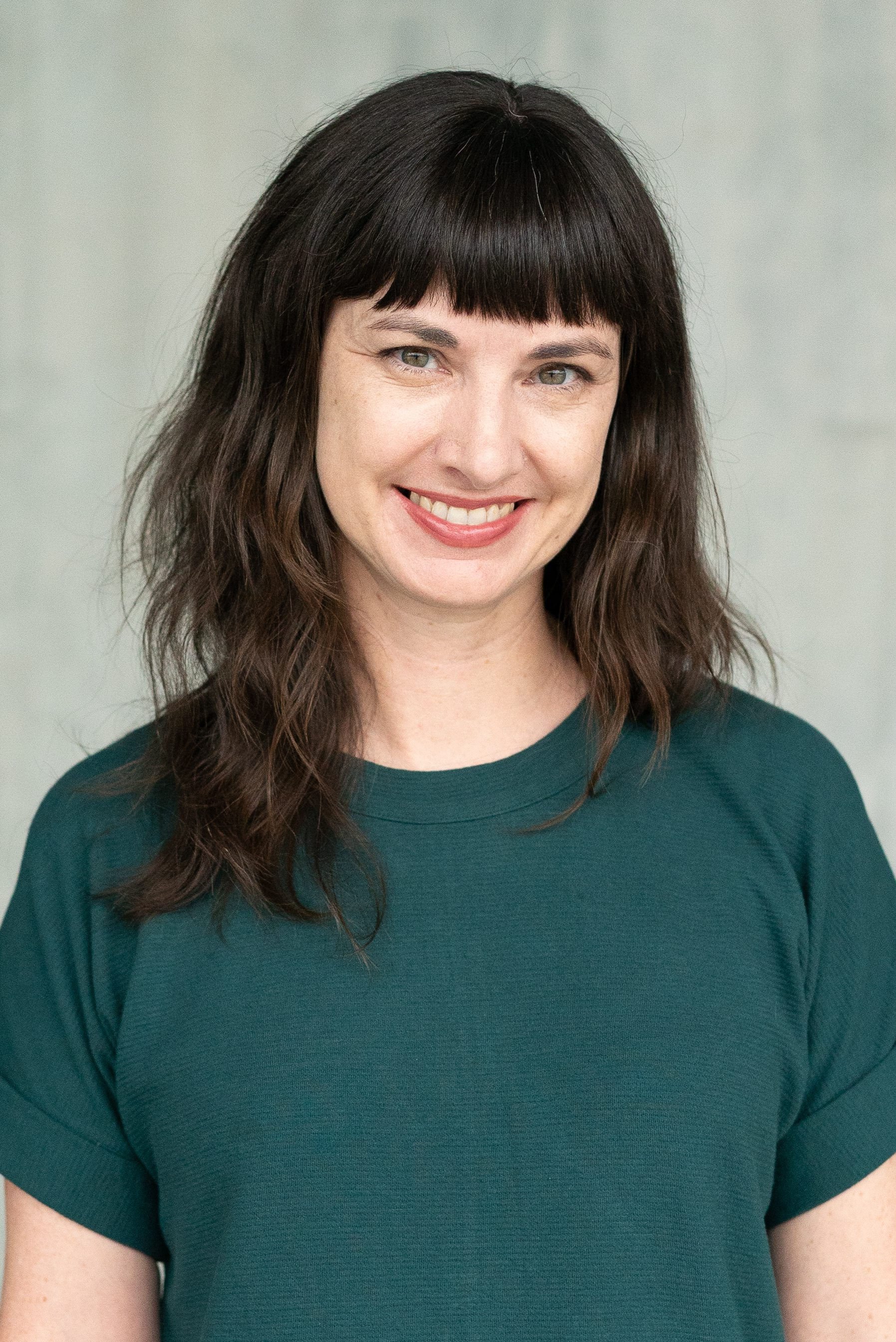
“We are not therapists, we can’t necessarily help anyone in that sense, but we can help you to connect your own emotional expression to what you are experiencing,” says Ryan, who has a degree in psychology and a master’s degree in museum studies.
“We can help people feel more comfortable expressing themselves through making art or walking through the exhibition.”
Artist using her work to promote ‘a positive mental health culture’
Yayoi Kusama is one of the most influential and inspiring artists of our time and the massive retrospective of her work is also an exploration of her personal struggles.
Throughout her life, Kusama has communicated her mental health challenges through her art, and spread messages of healing through the medium.
The Shall We Talk at M+ programme is twofold: it offers students a guided visit through the Kusama exhibition to help them feel comfortable talking about their own mental health, and will also host art workshops.
By choosing artworks that are likely to elicit a range of responses, Ryan hopes the students will be better able to express what they are feeling.
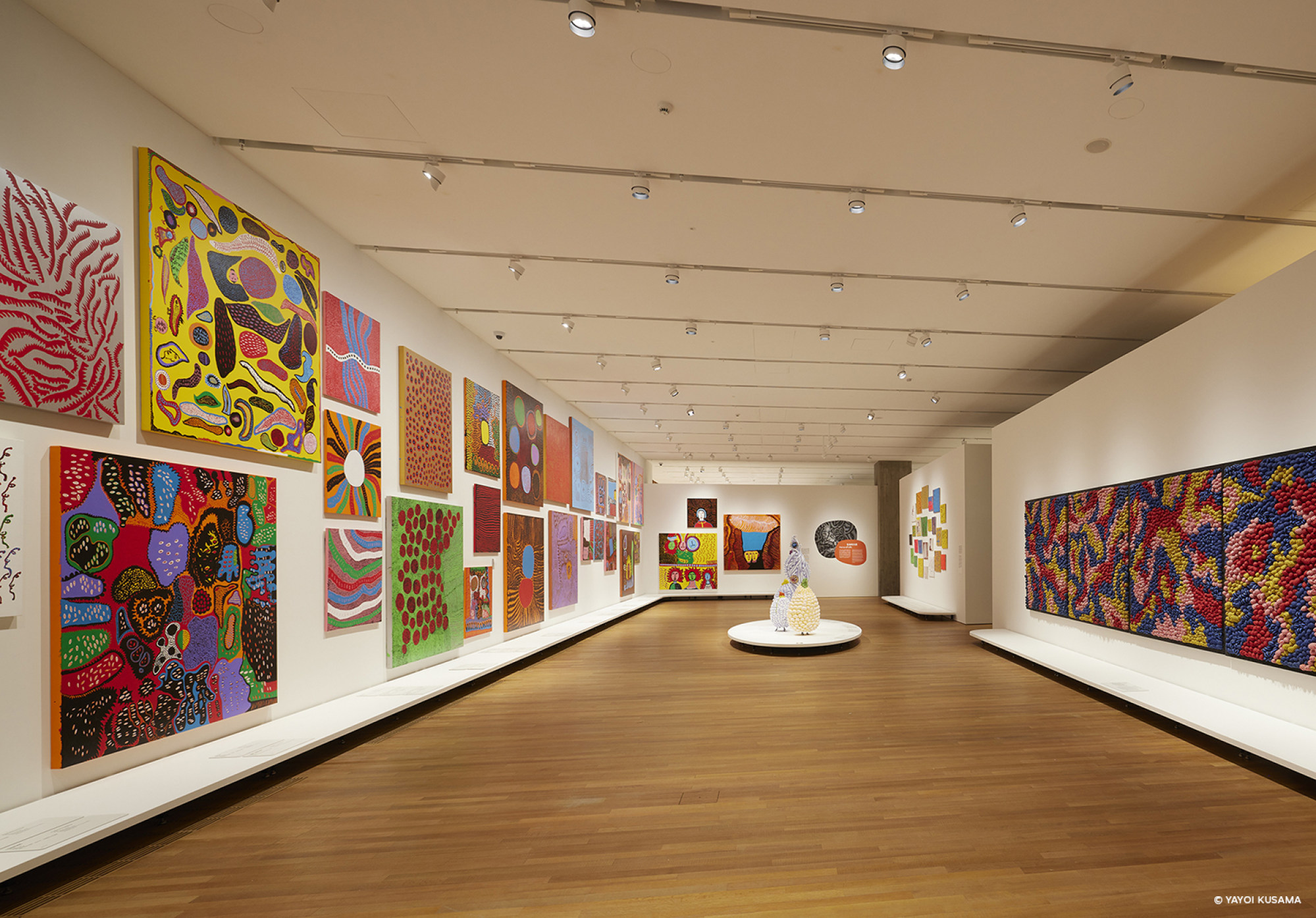
The wall of Kusama’s self-portraits, created over 65 years, will be used as prompts to get people to talk about how they see themselves, and reflect on how their view of self can change over time.
The concept of infinity has long fascinated Kusama and has become central to her work.
Pacific Ocean (1960) was inspired by the young artist gazing down on the ocean from her 1957 flight from Japan to the United States. It helps give the viewer the sense that we are all part of a greater world, connected to each other, and inspires a feeling of awe.
Viewers can meditate on the shift from Kusama’s sombre grey-and-black 1976 installation Death of a Nerve to her new large-scale artwork commissioned by M+, Death of Nerves (2022).
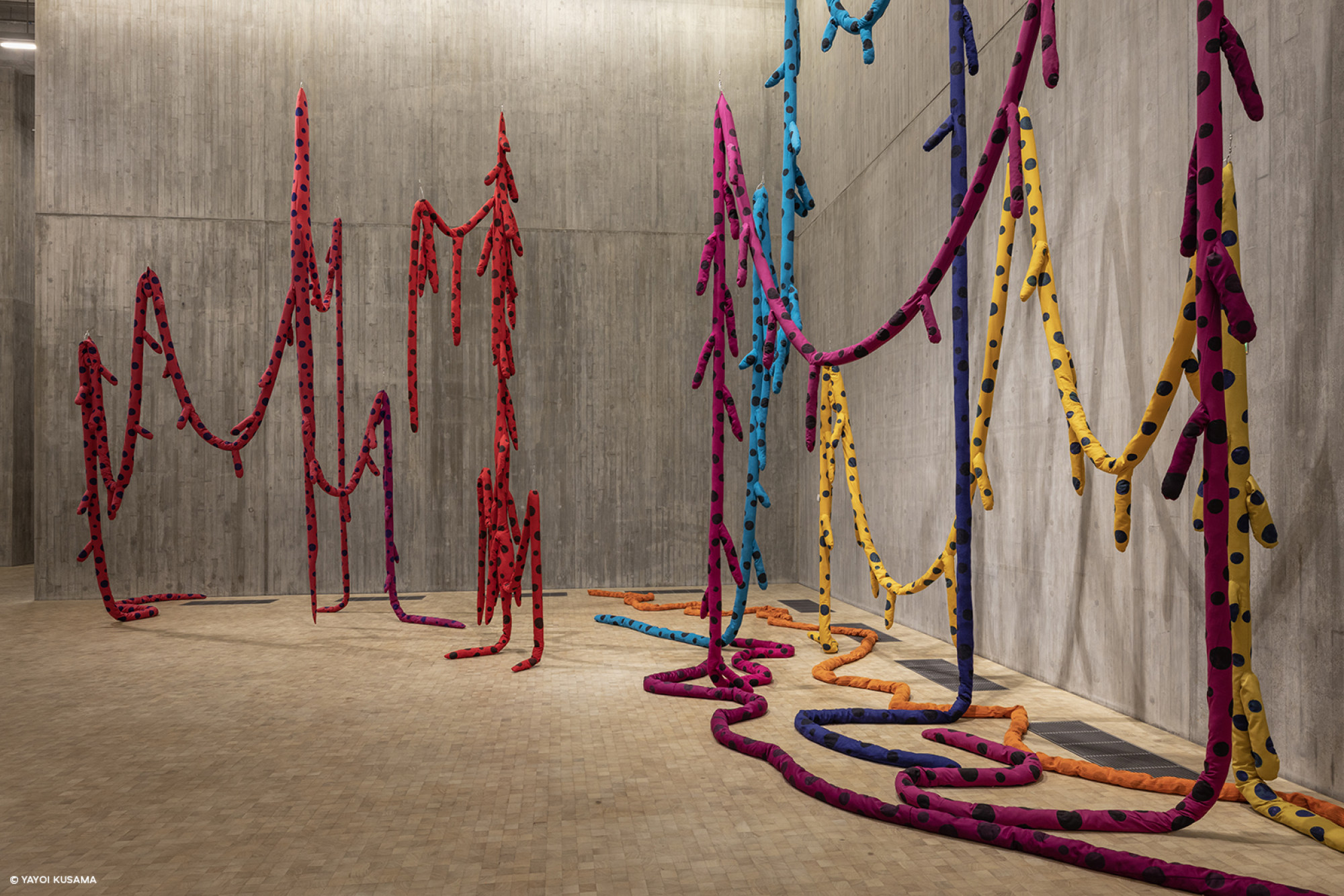
“Kusama said herself that she creates art for the healing of all mankind. She is putting it out there because wants to create connection and make us feel better,” Ryan says.
The art workshop, created in partnership with Hong Kong University’s Centre on Behavioural Health, will encourage students to create artworks themselves, using Kusama as a catalyst.
The artist is well known for using polka dots in her art as a means of showing connection, and this motif might be a springboard for a personal work.
“The workshop isn’t about talking about your feelings, it’s about expressing yourself through colour and shape. It’s not about making a perfect work, it’s the process of creating,” Ryan says.
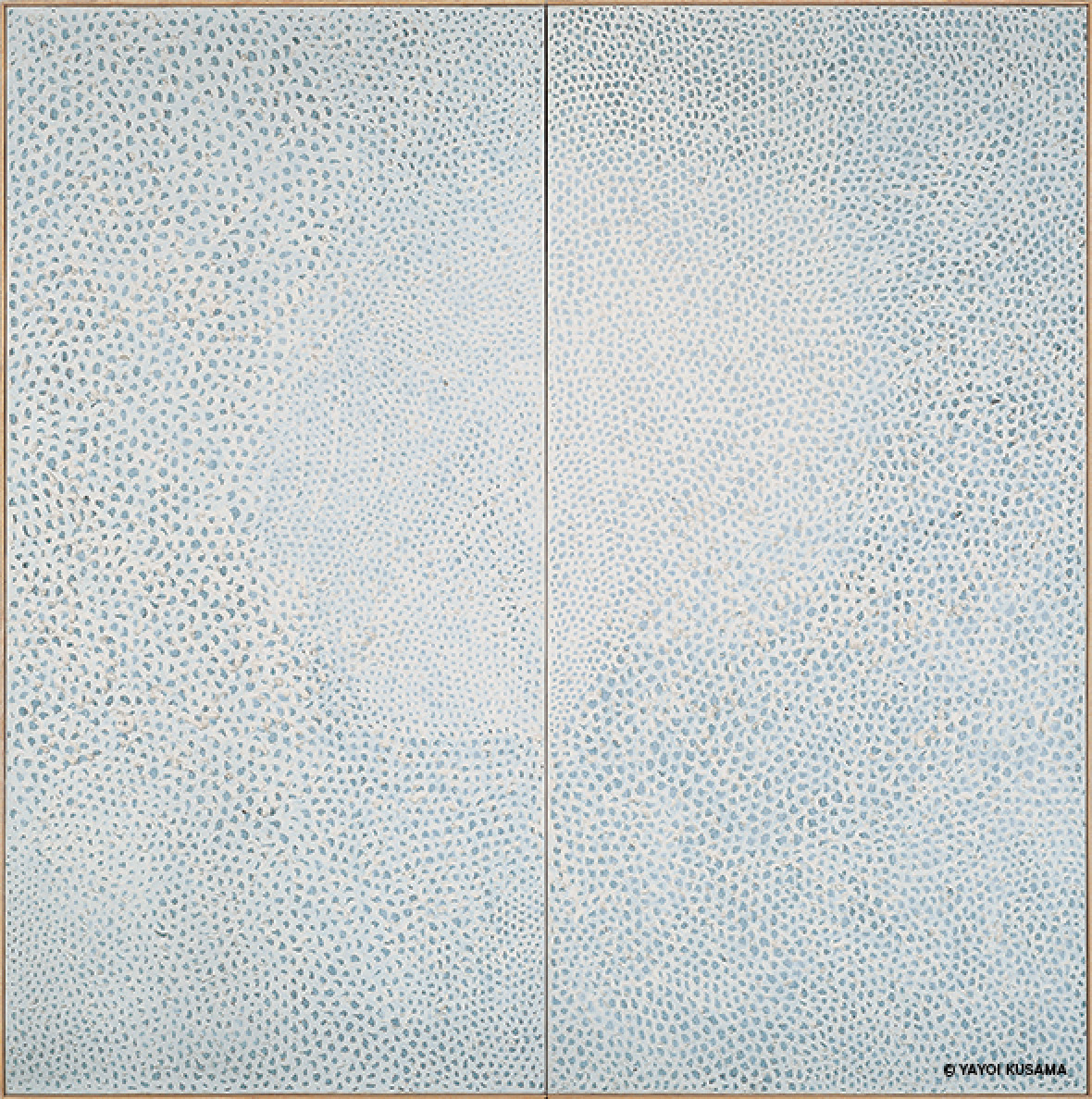
Although this programme – and the free tickets – are aimed at students, everyone can benefit from a slow stroll through M+, taking time out to reflect and connect.
A UK study called “Museums on Prescription”, which ran from 2014 to 2017, found that museum-based programmes for older adults improved their psychological well-being over time.
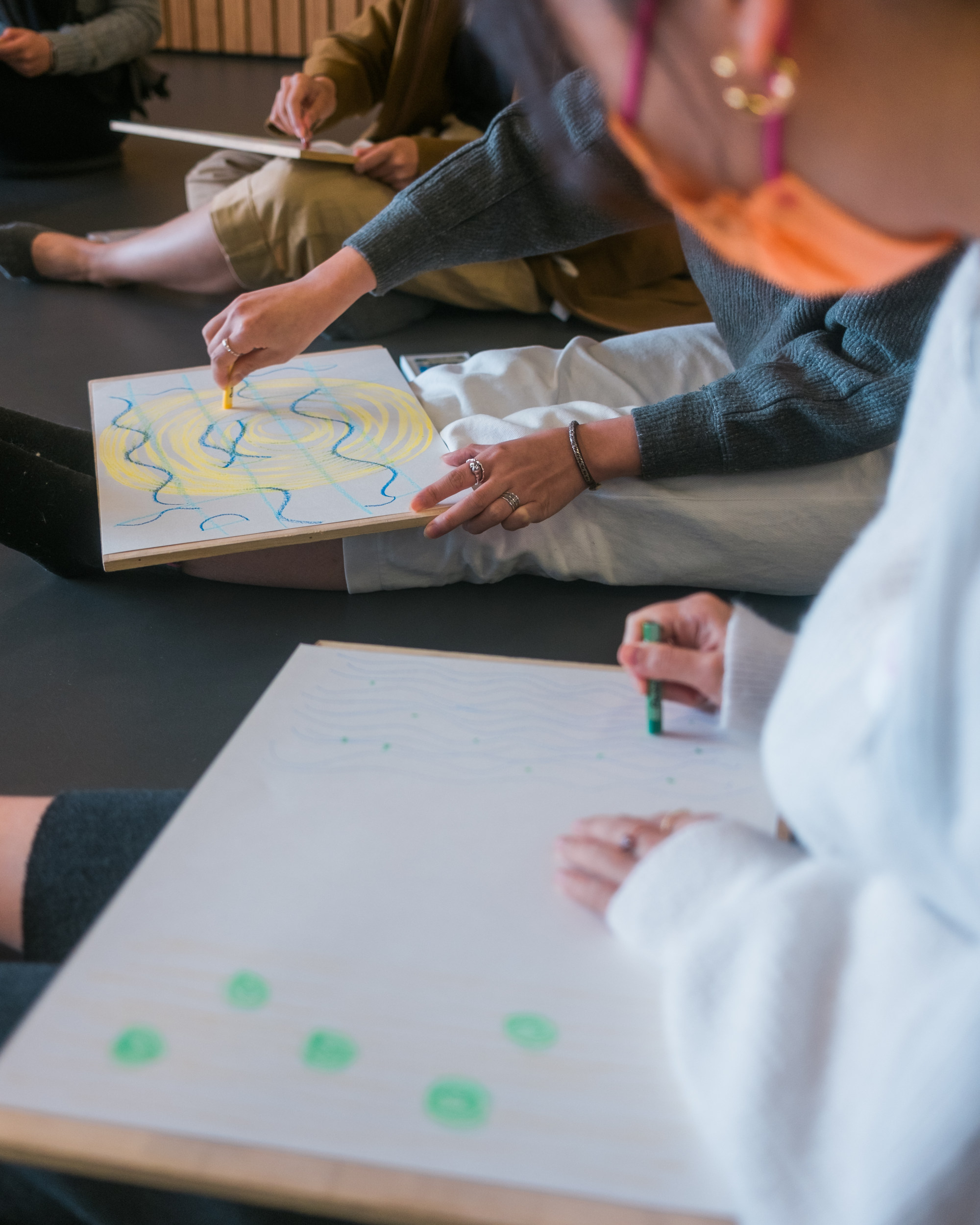
A similar peer-reviewed study at Canada’s Montreal Museum of Fine Arts, “Thursdays at the Museum”, found that art activities at the museum increased participants’ overall mood and well-being.
“A lot of people come to a museum with someone else, perhaps a parent and child, or grandparent and child, or a friend, or a couple. They are experiencing something together. That facilitates social connection. It has a healing aspect,” Ryan says.
Wong Yan-lung, chairman of Hong Kong’s mental health advisory committee, hopes the collaboration will promote public education on mental health – and reduce stigma.
“A lack of understanding on mental health leads to stigma,” he says. “Discrimination and fear of discrimination deter opening up and help-seeking. I have no doubt the 10,000 students and many others visiting the exhibition will derive great benefit beyond the artistic appeal.”
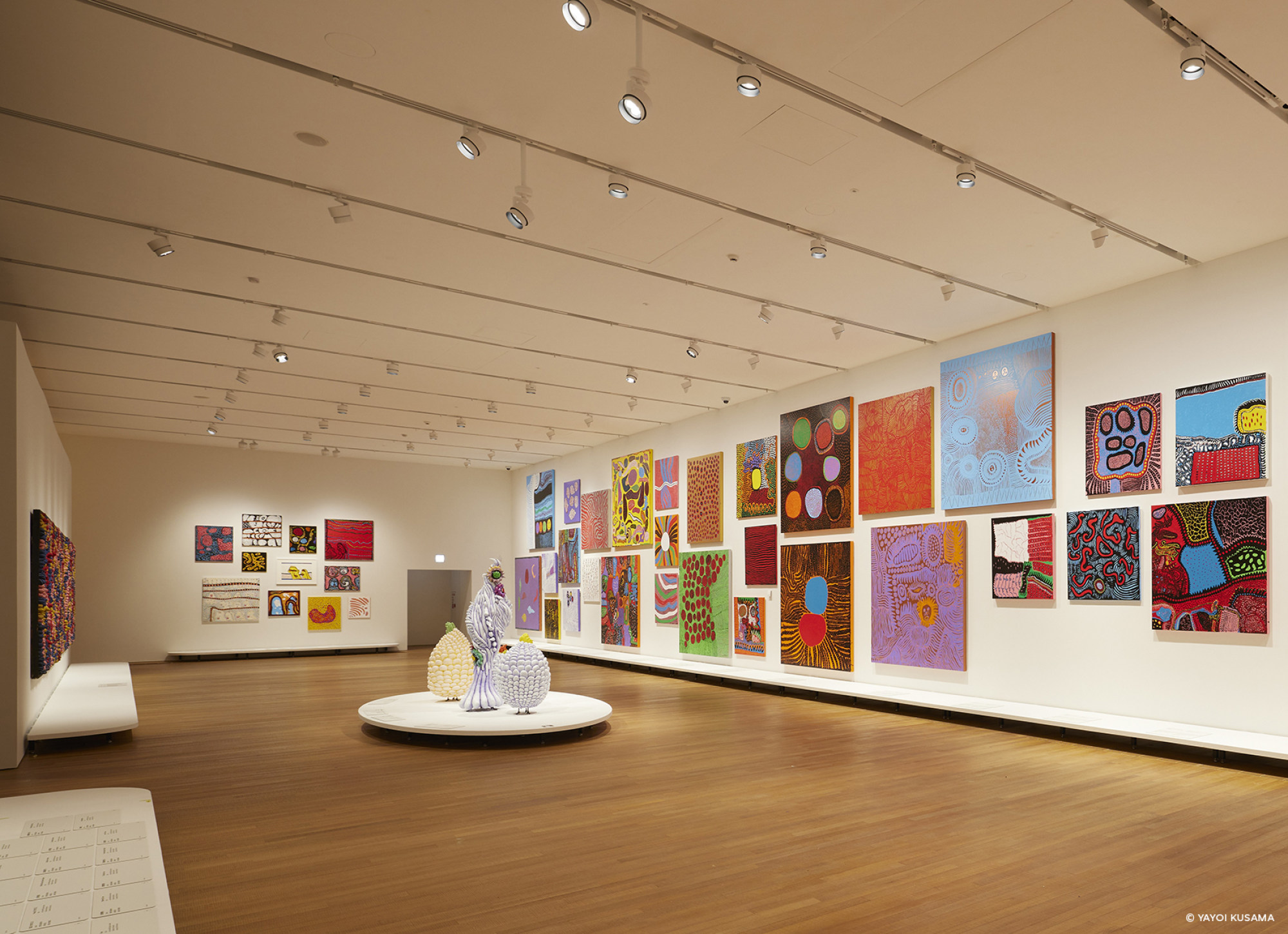
Museum director Suhanya Raffel says community is at the core of what M+ does, so besides presenting world-class exhibitions, it focuses on curating diverse and engaging public programmes to promote health and well-being to the community.
“We truly hope that this partnership will enable the city’s future young leaders to not only embrace the artworks created by Yayoi Kusama but be inspired by the heart-warming stories of the artist to find strength to navigate life’s challenges through art,” Raffel says.
The free tickets are given on a first-come, first-served basis for redemption from Tuesdays to Sundays from March 18 until May 14, up to 45 minutes from the end of its opening hours each day.

Eligible students can show their valid full-time student card at the information desk on the ground floor of M+ to redeem a ticket. No preregistration is needed.

